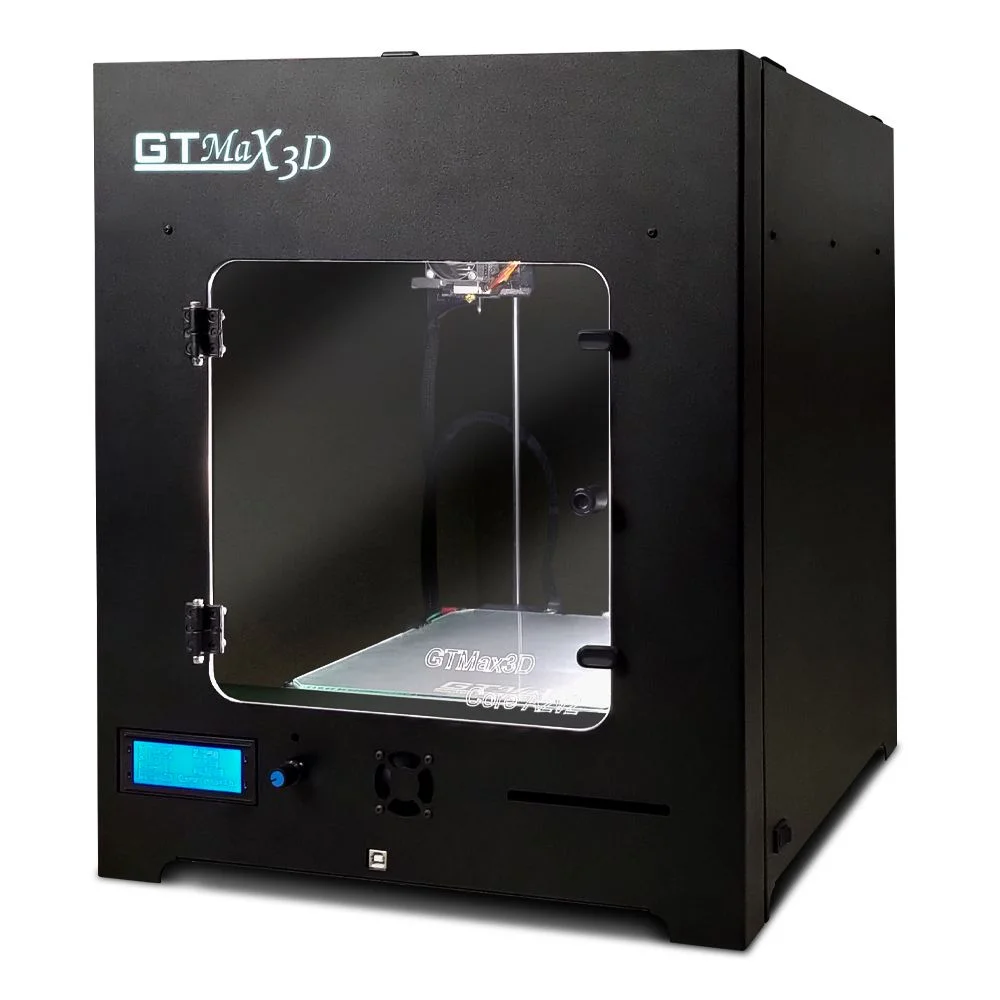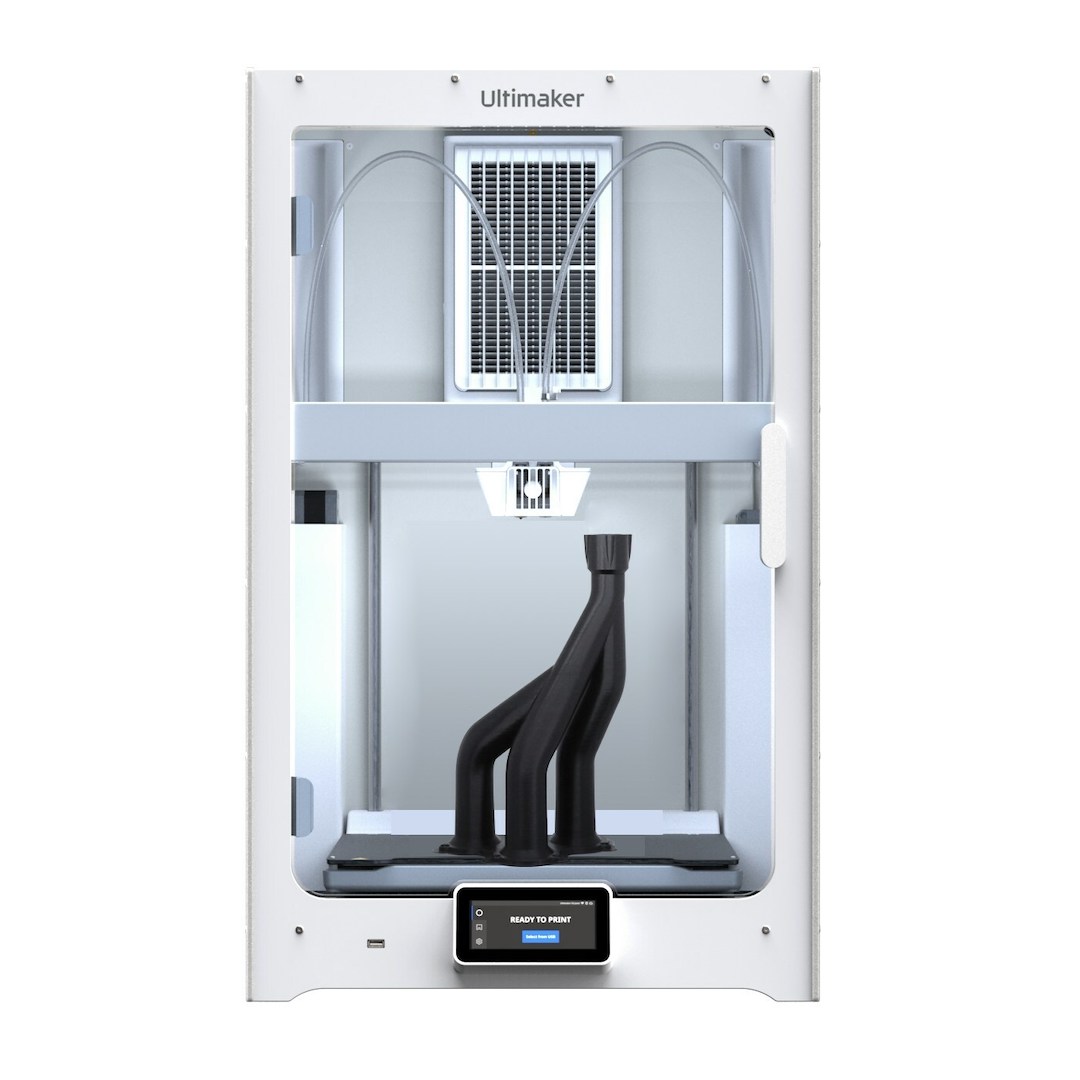Compare Core A2V2 vs S7
Comparison between the best 3D printers
Choose the best 3D printer at the best price. The cheapest 3D printers are here.
Buy a 3D printer here with 3D Fila.
 |
 |
|
| Model | Core A2V2 |
S7 |
| Printing Material | Filament | Filament |
| Buy Filament for GTMax Core A2V2 | Buy Filament forUltimaker S7 | |
| Estimated price | $684,00 | $8300,00 |
| Manufacturer | GTMax | Ultimaker |
| Release Year | 2019 | 2022 |
| Print Volume [mm] | 220x220x240 | 240x330x300 |
| Printer Size [mm] | 425x460x512 | 585x495x800 |
| Weight [kg] | 29 | |
| Power Loss Recovery | YES | YES |
| Enclosed printer | YES | YES |
| Bed Leveling | Automatic | |
| Filament End Sensor | YES | YES |
| Bed type | Heated | Heated |
| Power supply system | Bowden | Bowden |
| Standard nozzle | 0,4 | 0,4 |
| Maximum Nozzle Temperature [°C] | 295 | 280 |
| Maximum Bed Temperature [°C] | 135 | 120 |
| Maximum printing speed [mm/s] | 150 | 180 |
| Filament holder | YES | YES |
| Camera for supervision | NO | NO |
| Recommended filaments | PLA, PETG, Tritan, Flex, ABS | PLA, ABS, PETG, PC, Nylon, Tritan, PP |
| Recommended slicers | Cura, Simplify, Slic3r, IdeaMaker | Cura |
| Maximum Resolution [mm] | 0,05 | 0,1 |
| Processor | ||
| Display | Mono | Display touchscreen 4,7'' |
| Power Supply | 500 W | |
| Connectivity | SD / USB | USB / Wi-Fi |
| Operating systems | Windows, Mac, Linux | Windows, Mac, Linux |
| Date of registration in the system | 2022-11-12 | 2023-01-28 |
| Release date | 2019 | 2022 |
| Extra features | The GTMax3D ProCore A2v2 is a compact and robust 3D printer with a printing area of ??220 x 220 x 240 mm. It offers high print quality, ranging from 0.05 mm to 0.32 mm. Its features include automatic filament detection and changing, travel speed of up to 300 mm/s, and a heated aluminum bed with a glass top. It has automatic bed leveling with 16 points and an all-metal hotend that reaches up to 298°C. The printer has a carbon steel frame with electrostatic painting, is automatic bivolt and has connectivity via USB and SD card. The Bowden system and core xy kinematics complete its advanced features. | The UltiMaker S7 printer features a series of technological innovations to enhance 3D printing. It incorporates a flexible, magnetic build plate with PEI coating, promoting better adhesion and easier part removal. Its new inductive sensor significantly improves bed leveling, ensuring perpendicular and accurate prints. In addition, the S7 has a higher quality camera for remote monitoring, an integrated air filter, and uses a unique glass door to maintain a constant temperature in the print chamber. The machine is also compatible with the expansion kit for metal printing. |
| Support for multiple colors and materials (AMS and CFS) | NO | NO |
Notes * |
||
| Cost-benefit | 6 / 10 | 1 / 10 |
| Hardware | 2.5 / 10 | 4.2 / 10 |
| Tela | . | . |
| Print volume | 3 / 10 | 4 / 10 |
| Performance | 1 / 10 | 1 / 10 |
Conclusion |
| In comparing the GTMax Core A2V2 and the Ultimaker S7, several key factors emerge that highlight their respective strengths and weaknesses. The GTMax Core A2V2 presents itself as a cost-effective option without sacrificing essential features such as automatic bed leveling, a heated bed, and filament end detection. It offers a respectable print volume and high-resolution capabilities, making it suitable for hobbyists and small projects. However, it lacks advanced connectivity options and some of the premium features found in more expensive models. On the other hand, the Ultimaker S7, while significantly pricier, justifies its cost through added features such as a flexible magnetic build plate, advanced bed leveling technology, and compatibility with expansion kits, which enhances its versatility for various materials. The printer’s superior build quality, integrated air filter, and improved temperature control make it a robust choice for professional environments, where print quality and reliability are paramount. In conclusion, the GTMax Core A2V2 is ideal for budget-conscious users who still desire quality prints for everyday projects, while the Ultimaker S7 is better suited for professionals and serious enthusiasts willing to invest more for advanced capabilities and superior performance. The choice ultimately depends on the user's specific needs and budget considerations. |

